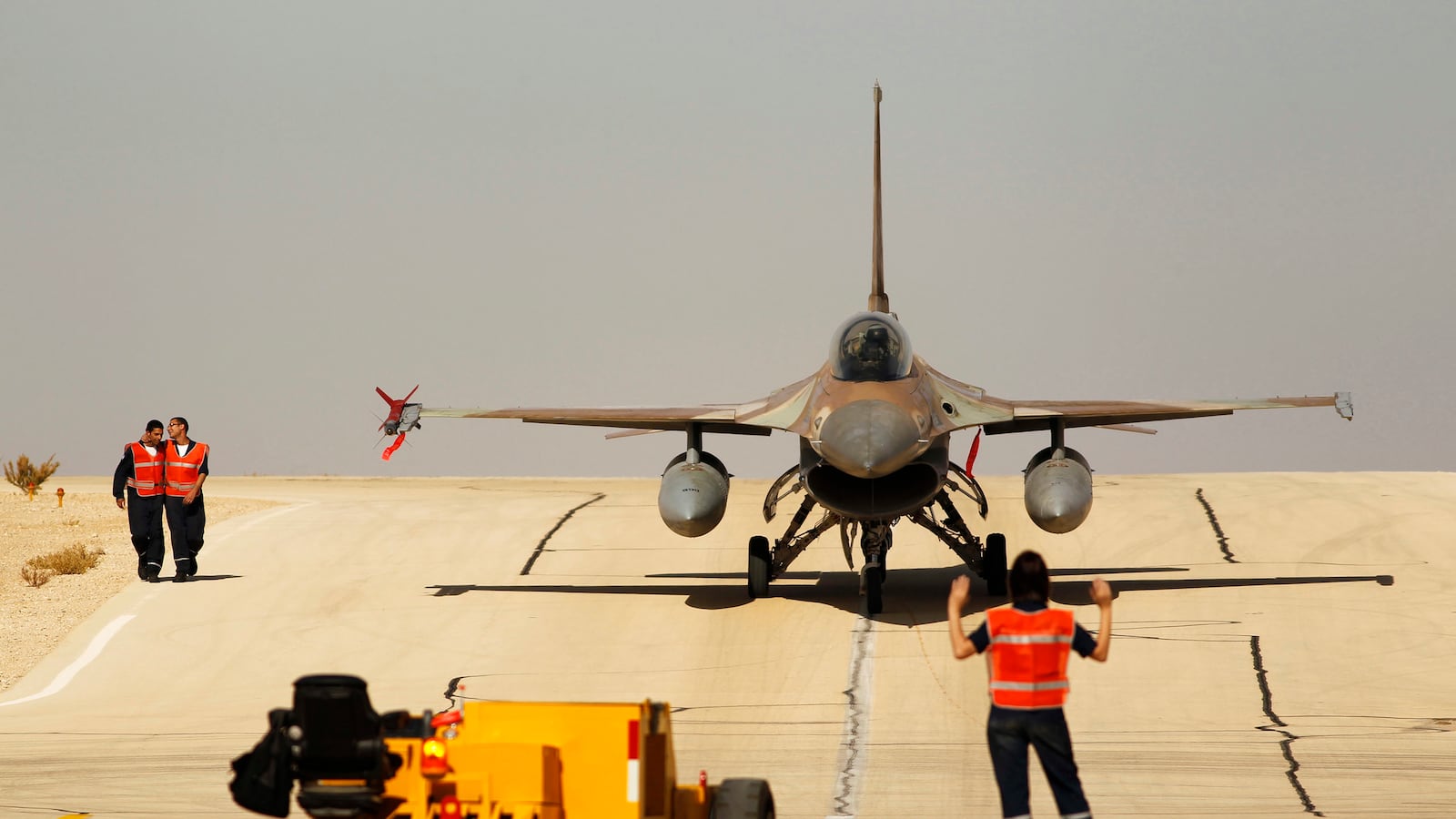As the Middle East sinks further into chaos, the Americans and Israelis flaunt a luxury that neither can afford. That is, neither country can afford to anchor its strategy to ideology, long after any mooring in reality has vanished.
Dick Cheney’s dream of the United States being greeted as Iraq’s liberator has turned into a nightmare. Meanwhile Israel, a nation that mourns the kidnapping and murder of three of its teenagers, has watched the world’s sympathies recede overnight as a Palestinian teenager was killed and another beaten on film, even as a new shower of Palestinian rockets continues to rain down on southern Israel.
In this age of social media and asymmetric warfare, brute force alone doesn’t always get the job done. In late 2008 and 2009, Israel waged a three-week invasion of Gaza, in which 13 Israelis and more than 1,400 Gazans died. Yet the land has not since been quiet.
Israel’s F-16s, attack helicopters, and tanks—a modern-day cavalry—succeeded in shocking, but they did not awe. And so the conflict continues.
This is not an argument for “peace.” This is not an argument for brotherhood. Rather, this is an argument for brains. Specifically, this is an argument for better technology.
If the Israelis get that, not only will fewer Israelis die, but probably fewer Palestinians, too. Why? The reason is simple: Fewer people die when the fighting doesn’t start. Tit-for-tat is costly for both sides.
So Israel should start thinking more about preemptive technology. Stopping the fight before people get killed is better than finishing the fight after blood has been shed.
Clearly, America and Israel need a better and “cooler” arsenal as they each move into the future. Both countries require a battery of weapons that projects force while minimizing the amount of manpower put in harm’s way. Given the reality of their respective militaries looking at diminished sources of manpower, this is essential.
Let’s start with the kidnaping of those three Israeli teens. Can anyone say this was well handled by the Israelis? There was the fiasco of the emergency phone call. But more broadly, where was the safety system?
Security cameras eliminate crime—that’s why shopping malls are safe. If Israel lives in a world of drones and danger, then drones should be part of the West Bank’s landscape—never-blinking lidless eyes on what may be going wrong.
Now to other areas of fighting—rockets. Israel seems hesitant to respond to this changing landscape, as the country dithers over deploying David’s Sling, an American-funded medium range anti-missile system. David’s Sling was expected up-and-running in 2015, but not anymore. Major-General Amir Eshel, chief of Israel’s air force, called David’s Sling “an excellent system which will be operational,” but could not “remember” when that would come to pass.
Israel’s civilian population has the right to expect to be protected from ever-longer-range missiles launched from Gaza, and an effective anti-missile defense system would seem to be logical corollary. Apparently, generals and accountants have other ideas.
And oh, by the way, the United States isn’t all that safe either. North Korea continues testing and launching missiles, and yet there is no sense of urgency about building an updated and viable anti-missile defense. Seemingly, we have placed our trust in bean-counters and negotiators, and that is hardly reassuring.
And now to another example of Israeli vulnerability—cyber-warfare. The Syrian Electronic Army hacked into the Israeli military spokesman’s Twitter account last Thursday night, and sent out a fake tweet warning of a post-rocket attack nuclear leak at Israel’s nuclear plant at Dimona. Coming on the heels of the Israeli Police botching a phone call from one of the murdered teens, such cyber-insecurity is not exactly inspiring.
And the United States can’t seem to protect its cyber-assets, either. China is stealing the secrets of our weapons manufacturers. Iran is hacking into our banks’ computer systems, while Russians are breaking into our oil and gas companies’ control systems.
Apparently and not surprisingly, the Israelification of the West Bank has won few hearts and minds, and don’t expect it to with the Palestinian population nearing parity with Israel, and religious fundamentalism becoming a coin of the realm for both. Indeed, we may be seeing what a “One State” solution looks like—an ethnic-religious civil war. And yes, the Palestinians handed out candy on 9-11, to celebrate the death of Americans, and their mothers rejoiced over the recent kidnappings and murders.
So, if Israel is going to stay where it is for the long haul, it needs a defensive and technology strategy, and right now there’s not enough in place. Scrimping on missile deployment is not the way to do it, and scrawling slogans on churches and mosques in so-called “price tag attacks” is, to say the least, self-defeating.
Avi Dichter, the former head of the Shin Bet, Israel’s internal security service, mused that an operation to root out Hamas’s infrastructure in Gaza would take a year or more, while talk of a Third Palestinian Intifada bubbles. As a practical matter, Dichter’s plan is unworkable. No one—not the United States and definitely not the United Nations—is going to give Israel that kind of open-ended green light.
Instead, Israel will need to expand on its surveillance techniques, drone, and anti- missile capabilities, and accelerate further its infusion of its “Start-up Nation” ethos into strategic capability. Surveillance drones that can see all, micro-sized payload delivery systems that can work lethally away from the traditional battle field, and a defense system that can take down more incoming missiles faster and earlier are imperative for Israel. Holding on to the West Bank, and worrying about Iran and ISIS can’t be done on the cheap.
Technology that stealthily decimates in the blink of an eye, that is what is what Israel needs in the Twenty-First Century. Israel seems done with the lions and lambs thing. Now, Israel needs a technology defense vision that is equally stern.






